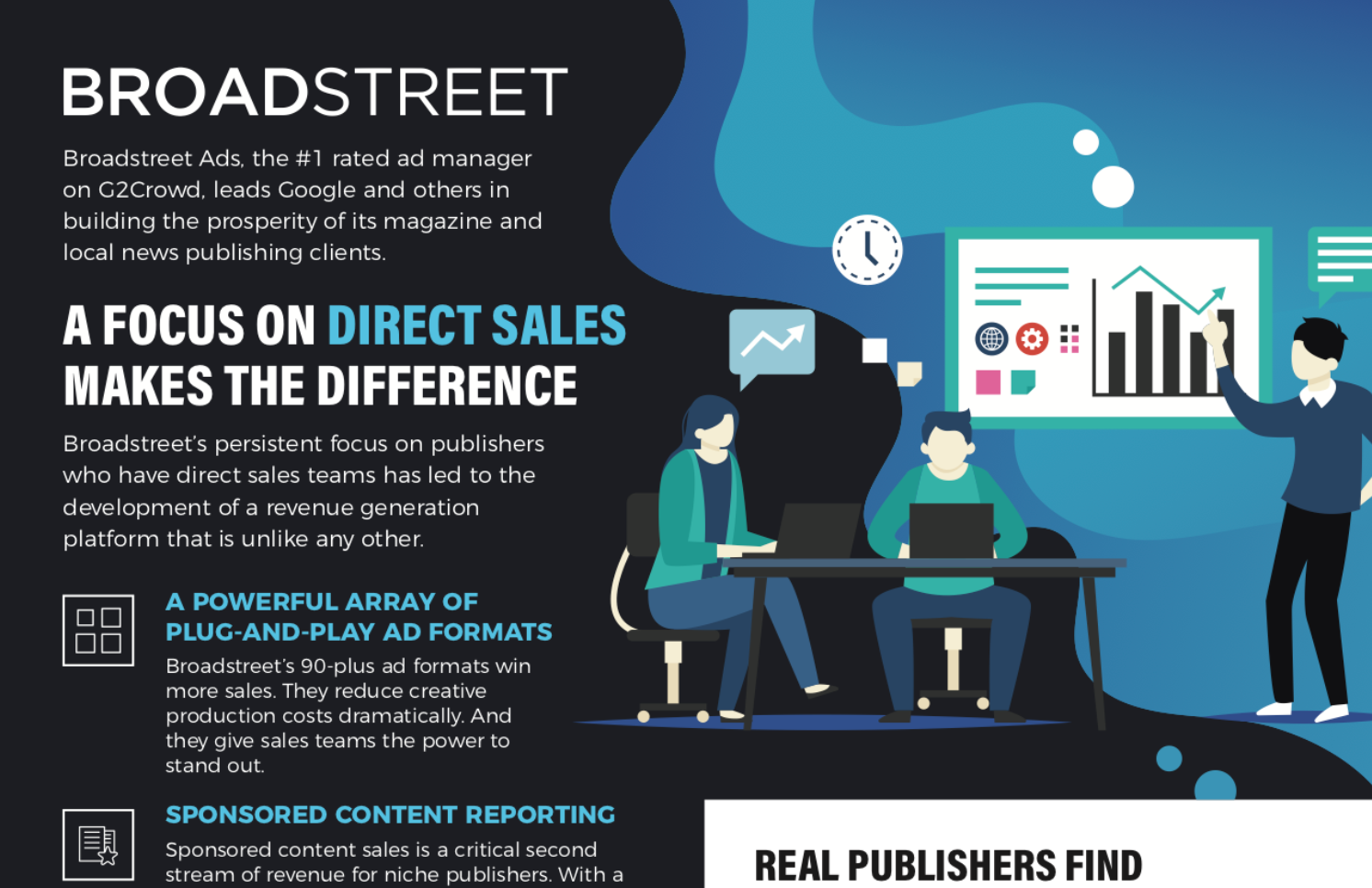Treat Your Advertiser Like a Partner with Prominent Placement
Competing with major ad networks as an independent publisher means thinking about what services or features the big guys can’t provide and then filling in those gaps. As more advertisers grow frustrated with the murkiness of online ad exchanges—often not knowing where their ads are running or how they are being seen—local publishers have spotted an opportunity to bring new brands into the fold with guaranteed prominent placement of ads on their sites.
Smaller publishers are never going to be able to compete with top exchanges on price alone. Selling ads at scale opens the door to cheap inventory, allowing businesses to run ads for pennies on the dollar. But where, exactly, those ads are running can be a mystery. Advertisers who buy at scale often have no idea where their ads are placed or what context they’re being seen in.
When local publishers treat their advertisers like partners and guarantee prominent placement of ads on their sites, they’re able to win back market share from big networks, like Facebook and Google.
Just imagine how frustrating it must be for advertisers to spend their budgets on digital advertising, and then find out their ads are being run alongside objectionable content. What about the advertiser who is spending thousands of dollars a month to run banner ads, but has not seen a single one being displayed?
When they work with large ad networks, small and mid-size businesses have virtually no recourse or methods for guaranteeing their ads are showing up in the places they should.
Ad networks like Facebook and Google are in the business of filling ad inventory, not making sure that specific campaigns are getting favorable placement. Although the networks do generally provide advertisers with data and analytics, these reports can be hard to decipher and nearly impossible to verify, planting seeds of distrust among business advertisers.
Fraud has plagued the online advertising industry for years, and it’s a problem that isn’t letting up. Advertisers who’ve agreed to pay a certain CPM—for example, $10 per every 1,000 clicks—are left wondering whether 1,000 real prospects actually clicked on their ads, or whether fraudsters are gaming the system.
Outside of click fraud, advertisers are still left wondering what type of content their creatives are running alongside. Most brands don’t want to be associated with racy photos or controversial content, but once they purchase advertising through large ad networks, it’s nearly impossible to maintain control.
Our new eBook, Ten Advantages: How Magazine and Hyperlocal News Publishers Will Win In the Era of Facebook and Google, we dig into some of the most common questions posed by advertisers today. These include:
- Will my ads be front and center, or marginalized?
- Will it appear next to objectionable or relevant content?
- Will it be placed favorably on mobile devices?
Local publishers who can answer these questions are already a step ahead of the competition. Guaranteeing prominent placement of ads, and positioning advertisers as partners rather than customers gives smaller outlets a leg up on the competition.
According to Bethesda Magazine Editor-in-Chief and Publisher Steve Hull, smaller publishers can differentiate themselves from larger networks by relying on their inherent advantages—namely, flexibility, ad size, and run.
An ad network might not be able to tell a business owner where his or her ads are going to run, but an independent publisher can do that and more. The key word here is transparency. Publishers who focus on transparency put their advertisers’ minds at ease.
Independent publishers can guarantee prominent placement across both desktop and mobile devices. They should also be able to guarantee that certain ads will be placed next to relevant content. A few examples of how this might work include:
- An ad for a sporting goods store runs alongside a recap of a high school football game
- An ad for a restaurant only appears in the Dining section
- An ad for a hospital won’t run alongside an article about a medical malpractice case
For advertisers, it all circles back to value. Advertisers want to know that they aren’t wasting money on their digital campaigns. If online ad networks can’t guarantee prominent placement and visibility of ads and local publishers can, then the decision is clear. When local sales reps focus on the issue of prominent placement during their calls with prospects, they pull the conversation back into their favor and increase the chances of closing the sale.


